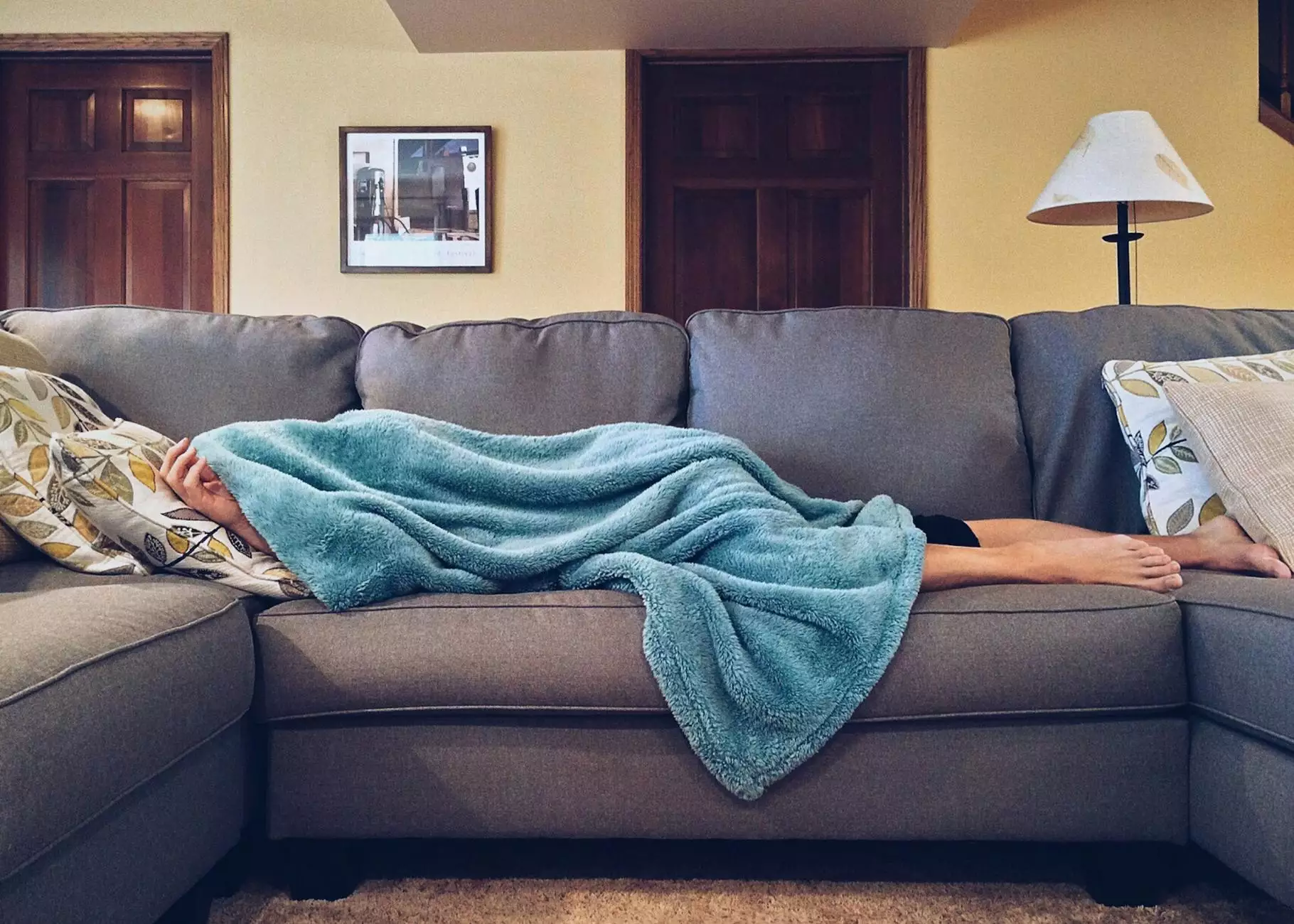How to Sleep Comfortably

Introduction
Welcome to Frameworks, your trusted source for all things sleep-related. We understand the importance of a good night's rest and its impact on your overall well-being. In this comprehensive guide, we will provide you with valuable tips and techniques to help you sleep comfortably and wake up refreshed.
The Importance of Quality Sleep
Adequate sleep is vital for our physical, mental, and emotional health. It allows our bodies to repair and recharge, enhances cognitive function, and boosts our immune system. However, many people struggle with sleep-related issues, leading to fatigue, irritability, and decreased productivity.
Creating a Sleep-Friendly Environment
To sleep comfortably, it's crucial to create a sleep-friendly environment. Consider the following tips:
1. Optimize Your Bedroom
Your bedroom should be a sanctuary for restful sleep. Make sure it is dark, quiet, and cool. Invest in blackout curtains, earplugs, and a fan or air conditioner to create an ideal sleep environment.
2. Choose the Right Mattress and Pillows
A supportive mattress and comfortable pillows are essential for a good night's sleep. Find a mattress that suits your preferred sleeping position and provides adequate support to your body. Pillows should align your head, neck, and spine.
3. Establish a Bedtime Routine
Creating a consistent bedtime routine helps signal your body to prepare for sleep. Incorporate activities that promote relaxation, such as reading, taking a warm bath, or practicing gentle stretching exercises.
Healthy Habits for Better Sleep
In addition to creating a sleep-friendly environment, adopting healthy habits can significantly improve the quality of your sleep. Consider the following suggestions:
1. Stick to a Regular Sleep Schedule
Go to bed and wake up at the same time every day, even on weekends. This regular sleep schedule helps regulate your body's internal clock, making it easier to fall asleep and wake up.
2. Limit Screen Time Before Bed
Electronic devices emit blue light, which can disrupt your sleep-wake cycle. Avoid using smartphones, tablets, and computers at least an hour before bedtime. Instead, engage in relaxing activities, such as reading a book or practicing mindfulness.
3. Avoid Stimulants
Limit your intake of caffeine, nicotine, and alcohol, as they can interfere with your ability to fall asleep and achieve a deep, restorative sleep. Opt for herbal teas, such as chamomile or lavender, to promote relaxation.
Tips for Falling Asleep Faster
If you often struggle to fall asleep, try incorporating these proven techniques:
1. Practice Relaxation Techniques
Deep breathing exercises, progressive muscle relaxation, and meditation can help calm your mind and prepare your body for sleep. Incorporate these techniques into your bedtime routine to enhance your sleep quality.
2. Create a Sleep-Conducive Atmosphere
Consider using white noise machines, calming music, or guided sleep meditations to create a soothing atmosphere that promotes sleep. Dim the lights and keep the temperature in your bedroom comfortable to enhance your sleep environment.
3. Try Natural Sleep Aids
If you're still struggling to fall asleep, explore natural sleep aids like melatonin supplements or herbal remedies. However, always consult with your healthcare professional before starting any new supplements.
Conclusion
By implementing the tips and techniques provided in this guide, you can improve your sleep quality and enjoy the many benefits of a good night's rest. Remember, sleep is a vital component of a healthy lifestyle, and prioritizing it will positively impact your overall well-being. Sleep comfortably with Frameworks, your trusted sleep experts.










